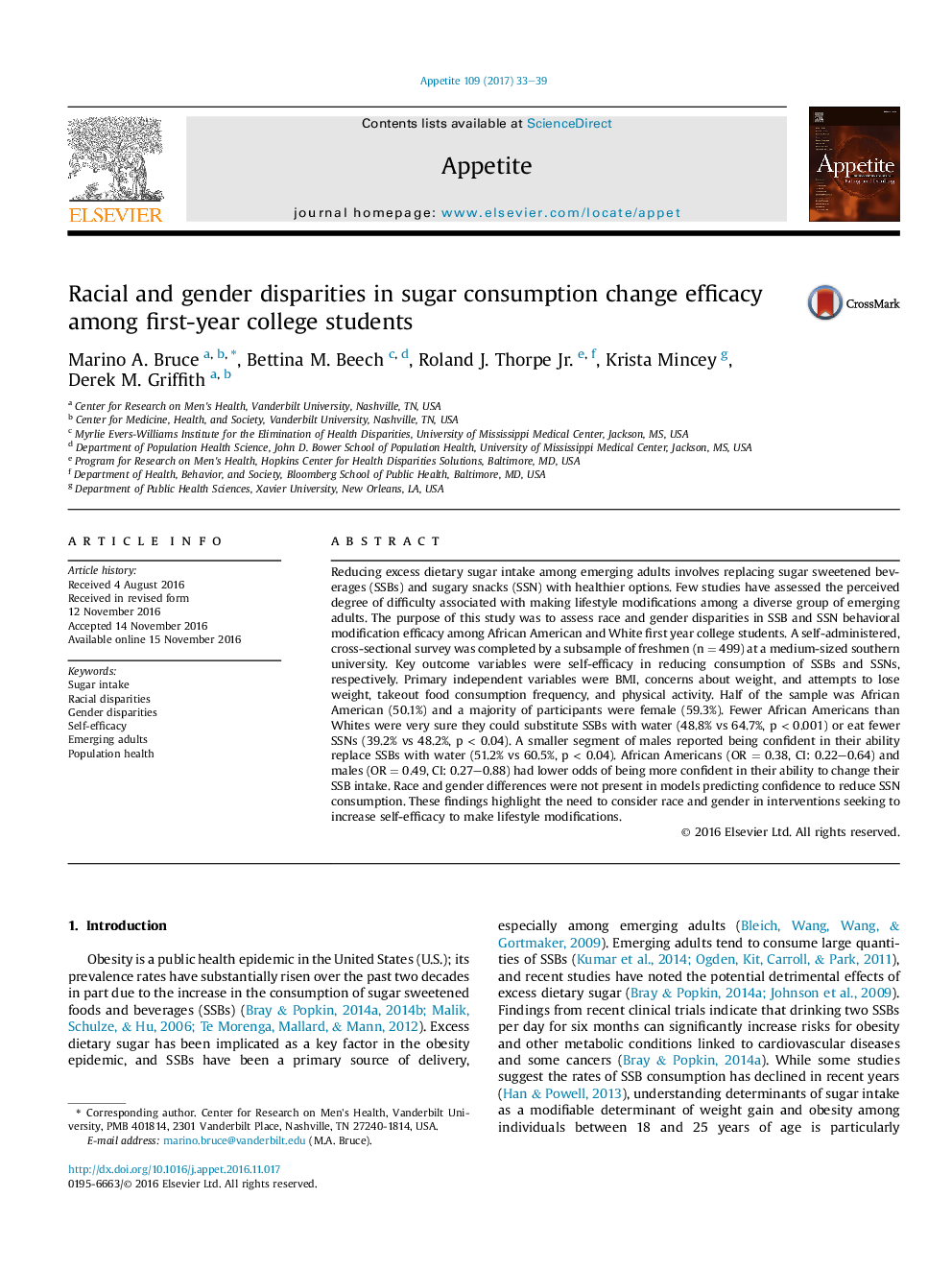| Article ID | Journal | Published Year | Pages | File Type |
|---|---|---|---|---|
| 5044359 | Appetite | 2017 | 7 Pages |
Reducing excess dietary sugar intake among emerging adults involves replacing sugar sweetened beverages (SSBs) and sugary snacks (SSN) with healthier options. Few studies have assessed the perceived degree of difficulty associated with making lifestyle modifications among a diverse group of emerging adults. The purpose of this study was to assess race and gender disparities in SSB and SSN behavioral modification efficacy among African American and White first year college students. A self-administered, cross-sectional survey was completed by a subsample of freshmen (n = 499) at a medium-sized southern university. Key outcome variables were self-efficacy in reducing consumption of SSBs and SSNs, respectively. Primary independent variables were BMI, concerns about weight, and attempts to lose weight, takeout food consumption frequency, and physical activity. Half of the sample was African American (50.1%) and a majority of participants were female (59.3%). Fewer African Americans than Whites were very sure they could substitute SSBs with water (48.8% vs 64.7%, p < 0.001) or eat fewer SSNs (39.2% vs 48.2%, p < 0.04). A smaller segment of males reported being confident in their ability replace SSBs with water (51.2% vs 60.5%, p < 0.04). African Americans (OR = 0.38, CI: 0.22-0.64) and males (OR = 0.49, CI: 0.27-0.88) had lower odds of being more confident in their ability to change their SSB intake. Race and gender differences were not present in models predicting confidence to reduce SSN consumption. These findings highlight the need to consider race and gender in interventions seeking to increase self-efficacy to make lifestyle modifications.
